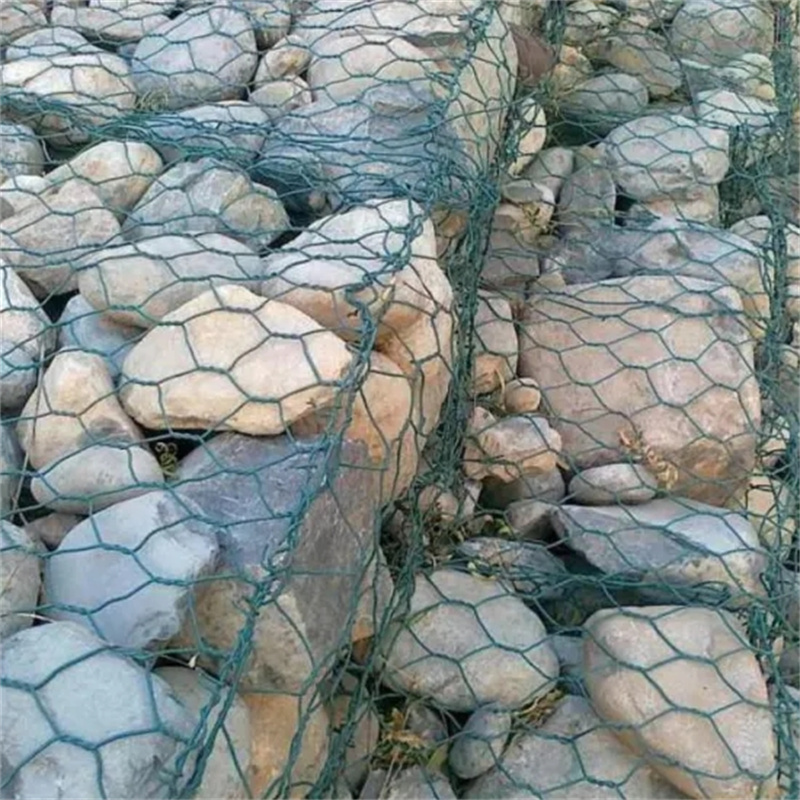សីហា . 19, 2024 03:36 Back to list
Durable and Reliable Gabion Coils for High-Quality Construction Projects
The Advantages and Applications of High-Quality Gabion Coils
Gabion coils are an innovative and effective solution for a variety of construction and landscaping challenges. Designed primarily for erosion control, landscaping, and civil engineering projects, gabion coils are made from high-quality materials that ensure durability and longevity. This article delves into the benefits and applications of high-quality gabion coils, shedding light on why they are becoming increasingly popular in various fields.
Understanding Gabion Coils
Gabion coils are essentially wire mesh containers filled with stones or other suitable materials. They are usually cylindrical in shape, which provides flexibility in design and application. The wire mesh is typically made from galvanized steel or PVC-coated wire, offering exceptional resistance to corrosion and environmental wear. High-quality gabion coils can withstand considerable pressure and harsh weather conditions, making them suitable for both temporary and permanent structures.
Key Advantages
1. Erosion Control One of the primary advantages of high-quality gabion coils is their effectiveness in controlling soil erosion. By placing these coils along riverbanks, slopes, and other vulnerable areas, they can absorb and dissipate energy from water flow, thus reducing erosion significantly. The cavities in the coils can also allow vegetation to grow, providing additional stabilization over time.
2. Flexibility in Design Gabion coils are highly versatile in design. Their cylindrical shape allows for ease of placement and adaptation to various terrains. Whether used in straight lines or curved slopes, they can be easily manipulated to meet the specific needs of a project.
3. Cost-Effectiveness Compared to traditional retaining walls or other erosion control methods, gabion coils are often more cost-effective. The materials required for filling them—such as local stones—are usually readily available, reducing transportation and material costs. Furthermore, their durability means lower maintenance and replacement expenses.
4. Environmental Benefits High-quality gabion coils promote sustainability. Their porous structure allows for natural drainage and prevents waterlogging, supporting the natural flow of water. Additionally, they provide habitats for various small organisms, contributing to biodiversity in the area.
high quality gabion coils

5. Aesthetic Appeal Gabion coils can be filled with aesthetically pleasing stones and rocks, allowing for creative landscaping solutions. They can be used in a variety of architectural designs, from creating garden borders to constructing retaining walls that enhance the visual appeal of the surrounding environment.
Applications in Various Fields
High-quality gabion coils find applications across multiple sectors, including
- Civil Engineering Frequently used in road construction, bridge foundations, and riverbank stabilization, gabion coils play a crucial role in ensuring the structural integrity of such projects. - Landscape Architecture Landscape architects often utilize gabion coils for creating decorative elements, seating, and functional barriers without compromising the overall aesthetic of the landscape.
- Environmental Conservation In projects focused on ecological restoration, gabion coils serve as an effective tool for stabilizing riverbanks, preventing soil erosion, and promoting natural plant growth.
- Residential Projects Homeowners are increasingly using gabion coils for retaining walls, garden beds, and decorative features. Their versatility allows for innovative designs that blend seamlessly with the natural landscape.
Conclusion
High-quality gabion coils are not only practical solutions for erosion control and landscaping, but they also contribute significantly to sustainable construction practices. Their flexibility, cost-effectiveness, and aesthetic potential make them an attractive choice for engineers, architects, and homeowners alike. As environmental concerns continue to rise, the demand for such innovative solutions will likely grow, further establishing gabion coils as a staple in modern construction and landscaping.
-
HESCO Gabion Baskets for Coastal Erosion Prevention
NewsAug.22,2025
-
Longevity and Durability of River Rock Gabion Walls
NewsAug.22,2025
-
How to Integrate Gabion 3D Walls in Urban Planning
NewsAug.22,2025
-
Reno Mattress Gabion Applications in Civil Engineering
NewsAug.22,2025
-
How to Install Wire Mesh for Gabion Baskets Properly
NewsAug.22,2025
-
Best Materials for Filling a Chain Link Gabion
NewsAug.22,2025
-
Wire Mesh Thickness Impact on Gabion Wall Load Bearing
NewsAug.12,2025






